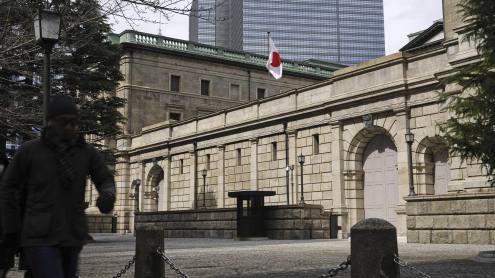The Maldives is emerging from a particularly difficult period in its history, which has fundamentally affected its political and legal systems. The troubles stem from October 2016, when the Commonwealth of former British territories queried the country's record on democracy and threatened it with suspension. Under then-president Abdulla Yameen, the Maldives withdrew from the Commonwealth, citing unfair treatment.
Subsequently, criminal allegations against Mr Yameen culminated in his surprise defeat in the 2018 election, losing to the Maldivian Democratic Party. In November 2019, he was jailed for five years for money laundering, and found guilty of pocketing a $1m payment destined for the state.
With a new government in charge headed by Ibrahim Mohamed Solih, the Maldives quickly moved to clean up its act, and made rapid changes to the judiciary to improve transparency. In February 2020, the country rejoined the Commonwealth after demonstrating improvements to human rights and releasing political prisoners. But even as it returns to the international community with renewed optimism, it faces new challenges with the ongoing coronavirus outbreak threatening its crucial tourism sector.
Expanding banking
Located in the Indian Ocean, the Maldives comprises 1190 small islands and atolls, and has 500,000 citizens. Providing bank services to the whole population is therefore difficult – especially when some islands have a population of just 200 residents.
One solution is mobile banking and some of the country’s banks, including Bank of Maldives (the largest bank) and Maldives Islamic Bank, offer mobile apps that cater to people without access to a branch. This works because the country has 100% 4G network coverage.
Mobile banking provider Ooredoo previously had several different apps, which it has recently consolidated into the single m-Faisaa app. To ensure as many Maldivians as possible can benefit, Ooredoo has undertaken a mission to educate local communities about using the app.
“Since launching m-Faisaa we do visits to communities and train people to use it,” says an Ooredoo spokesperson. “We found that the elderly were being left behind when it comes to utilising digital services. At first, we teach them simple processes such as how to switch the phone on and off, to use messaging services and social networking platforms. We have to teach people to trust their phones, to become comfortable with using them for financial transactions.”
Mobile wallet
The app operates as a mobile wallet that customers can top up, either from their bank accounts with Bank of Maldives or Maldives Islamic Bank, or with cash via an agent. New customers are verified by uploading their passport or ID, and a photograph. The app is not limited to customers of Ooredoo.
The app is widely used to pay utility bills, a service that saves money for residents of the more remote islands, who previously would have had to travel to a larger island to do so, thus incurring associated ferry costs. The app also has an e-commerce section that connects vendors from across the Maldives. This offers shoppers access to a broader range of products than they may otherwise be able to find, while giving small businesses the opportunity to reach a wider customer base.
The wallets are developed to hold enough funds to make bill payments viable. “Customers can spend Rf5000 [$325] through the app in a day, and take out Rf2000 in cash a day on a full wallet,” the Ooredoo spokesperson says. “At present, they can hold up to Rf20,000 in the wallet, but we want to increase this further. The average payments on m-Faisaa are currently between Rf900 and Rf1000.”
Doing business
While retail banking is showing signs of progress in the Maldives, businesses are still facing problems. Moody’s rates the country as B2 negative, citing the recent political instability, high debts, liquidity risks and the lack of diversity in the economy as factors.
A report by the credit rating agency said the outlook could be stabilised if there was secure access to domestic and international funding sources, but gave a prescient warning on what any hit to the tourism industry could mean for the Maldives and its credit rating. “A shock to the tourism sector, such as through natural disasters or political events, that the government is not able to mitigate, resulting in a sharp fall in foreign exchange earnings that threatens macroeconomic stability, would also likely lead to a downgrade,” it said.
Fitch last rated the Maldives in May 2019, maintaining its B+ rating. This took into account the country’s strong gross domestic product (GDP) growth, but also said dependence on tourism left the country vulnerable to shocks. Standard & Poor’s does not have a credit rating for the Maldives.
The issues for companies in the Maldives also extends into how easily they can operate there. The World Bank’s Doing Business report for 2020 ranks the Maldives 74th for ease of starting a business and 63rd in dealing with construction permits, but the more complicated aspects of running a business are ranked much lower. The country comes 157th for trading across borders, 124th for enforcing contacts, and 141st for resolving insolvency; overall, the Maldives is ranked 147th out of 190 countries.
Legal reforms
Strengthening the Maldives’ position and restoring faith in its banking system involves overhauling the legal structure.
Ibrahim Riffath, attorney general of the Maldives, believes while reform has been in the pipeline for some time, it has only recently made any headway. “The Maldives International Arbitration Centre [MIAC] was formed in 2013 following the implementation of the Arbitration Act 2013, but it has only recently taken its first steps,” he says.
A priority of the MIAC was to improve company law. “It has started its operations with the assistance of the US Commercial Law Department,” says Mr Riffath. “The centre is set to be fully functional this year and was due to be officially opened in March 2020. This will be a significant step in strengthening legal mechanisms and accelerating dispute resolution in the Maldives.”
The scale of the change needed to modernise the legal system is large in some cases, according to Mr Riffath. He says: “Some of the commercial laws in the country are often significantly out of date. For instance, the existing Foreign Investment Act was enacted in 1979. While it is mostly redundant now, it still covers decisions related to policy and foreign investment.”
In response to this shortcoming, the attorney general’s office presented 49 bills to parliament between November 2018 and December 2019. Of these, 29 have been enacted, and six were related to commercial matters. Another 56 bills have been proposed to parliament in the first quarter of 2020, including nine that are related to commerce and finance.
Tourism sector uncertainty
While the reforms are helping businesses, the real challenges at present in the Maldives are related to the tourism sector. The country's GDP is rising, with the most recent report from the Maldives Monetary Authority (MMA) for 2018 stating there had been a real GDP growth of 7.6% over the year to $5.3bn.
The biggest economic sector is tourism, increasing 7% with just under 1.48 million tourists visiting the country during 2018. In total, tourism receipts for the year were estimated at $3bn.
Mark Prothero, CEO for HSBC Sri Lanka and Maldives, says the bank has a long history of working with the tourism sector. “HSBC operates as a corporate bank in the Maldives, mainly supporting the resorts, hotels and other tourism-related businesses. Many of the companies are also our international clients,” he adds.
However, with the impact of coronavirus, the Maldives’ crucial tourism sector faces an unpredictable future. The country recorded its first cases of Covid-19 in March 2020, and reacted with measures such as reducing bank branch opening hours. Furthermore, the government announced a shutdown of all offices that, at the time of writing, was scheduled to last from March 19 to March 26.
Measures to help
The MMA has announced measures to support companies in the wake of the coronavirus measures, including a moratorium of six months on loan repayments for affected customers, reducing the minimum reserve requirement to 5% to free up bank liquidity, and making available short-term credit facilities. The MMA has also increased its foreign exchange intervention, and obtained a foreign currency swap facility of $150m with the Reserve Bank of India. In conjunction with the Ministry of Finance, the MMA has requested financial assistance from the International Monetary Fund.
Prior to the arrival of Covid-19, Mr Prothero says HSBC was considering widening its portfolio in the country. “We have been looking to expand our relationships beyond the tourism sector into areas such as telecommunications and so on," he explains. "We also see the development of the health sector with new hospitals and the expanding fisheries industry as potential growth markets.”
There are hopes the country can bounce back quickly. Masato Nakane, senior economist in the regional co-operation and operations coordination division, south Asia department, at the Asian Development Bank (ADB), says: “A decelerating economic growth is projected in 2020 as tourism gets a major blow from the outbreak of Covid-19, but construction and real estate will help keep the economy afloat. A more robust growth is projected in 2021 with tourism making a strong comeback, coupled with the sustained expansion in construction and real estate.”
However, he also cautions that there are other potential risks to the tourism sector, adding that the Maldives will have to start taking the threat posed by climate change more seriously. “Pressure on the fragile marine environment’s carrying capacity by residents and tourists alike threatens the quality of life on the islands, as well as the country’s future tourism potential,” says Mr Nakane.
International support
As pressures on the economy continue, the international community may play a larger role in supporting the Maldives. The ADB has provided $277.4m in support for the Maldives as of December 2019 in loans, grants and equity investments across 26 projects, as well as a further $29.78m in technical assistance. The development bank is currently supporting four projects covering sustainable energy, harbour expansion, waste management and the South Asia Subregional Economic Co-operation National Single Window Project, which is aiming to support trade by improving data flows in the processing of import and export documents.
The lending and grant programme outlined for 2020 to 2022 amounts to $119.58m, and a non-lending programme is focused on energy, water, and urban infrastructure.
Mr Nakane says the country’s economy has been on an upward trajectory for several years, attaining upper middle-income country status in 2010. However, it still faces some domestic challenges that go beyond its diverse geography and dependence on the tourism industry.
“The weak business environment and limited access to finance inhibit private sector development, with the lack of professionals and highly skilled human resources, and inequality in access to services and employment opportunities hinder inclusive growth,” says Mr Nakane. “Inefficiencies in public sector delivery and the state-owned enterprises sector are aggravating the public deficit and could undermine long-term fiscal sustainability.”
The Maldives is entering into an uncertain period, but the steps it has already taken to overhaul its judicial services and support its more remote communities may have laid the necessary groundwork to help this island nation recover quickly once the pandemic has passed.













